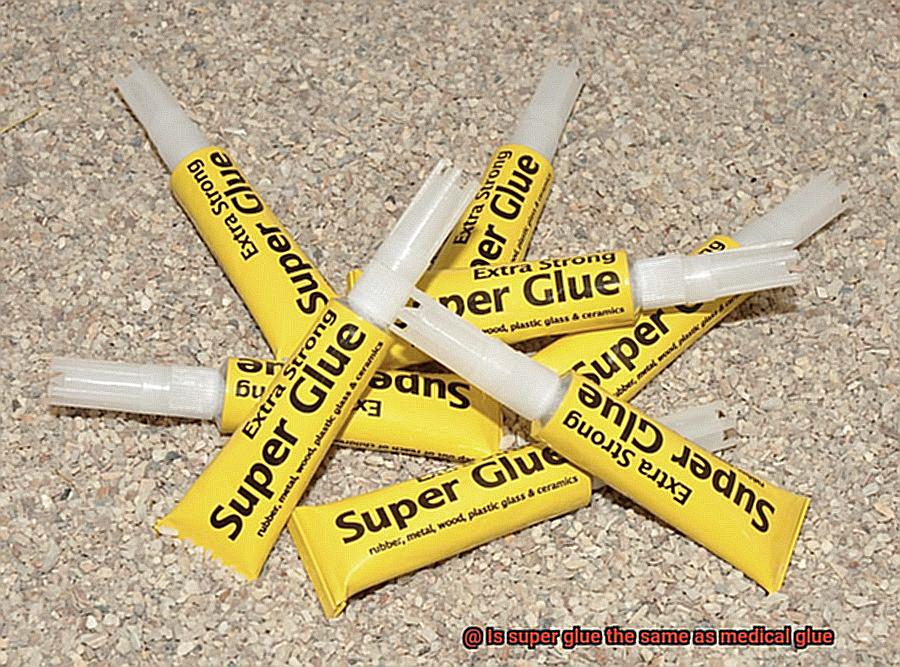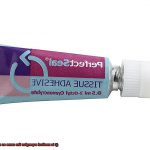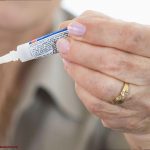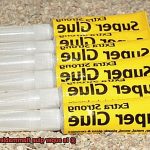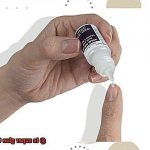Title: Super Glue vs. Medical Glue: The Sticky Showdown
Introduction:
Contents
- 1 What is Super Glue?
- 2 What is Medical Glue?
- 3 Differences Between Super Glue and Medical Glue
- 4 Uses of Super Glue
- 5 Uses of Medical Glue
- 6 Safety Considerations for Super Glue and Medical Glue
- 7 Advantages of Using Medical Glue over Super Glue
- 8 Disadvantages of Using Medical Glue over Super Glue
- 9 Conclusion
Adhesives, those magical potions that hold our world together, come in all shapes and sizes. But today, we’re diving into the ultimate showdown: super glue versus medical glue. Are they long-lost twins separated at birth or sworn enemies with nothing in common?
Get ready to uncover the truth as we embark on an adhesive adventure like no other. We’ll peel back the layers of these sticky substances to reveal their hidden secrets and untangle the web of similarities and differences.
From fixing broken toys to patching up wounds, super glue and medical glue both have their time to shine. But don’t be fooled – beneath their seemingly similar surfaces lies a world of disparity.
So buckle up, adhesive aficionados. In this blog post, we’ll dissect the properties, functions, and uses of super glue and medical glue. By the end, you’ll be armed with the knowledge to distinguish between these two sticky superheroes. Whether you’re a DIY enthusiast or just curious about what’s holding your insides together (don’t worry, it’s not as gruesome as it sounds), this is the blog post for you.
Prepare for a riveting journey through the land of adhesives – where bonds are made and myths are shattered. Let’s get stuck into it.
What is Super Glue?
Prepare to be amazed by the incredible power of Super Glue. Also known as cyanoacrylate adhesive, this transformative adhesive has revolutionized the world of DIY. From household repairs to intricate craft projects, Super Glue has become an essential tool in every toolbox. In this captivating article, we will uncover the secrets of this extraordinary adhesive, exploring its composition, working mechanism, advantages, limitations, and safety precautions.
What is Super Glue?
Super Glue is a liquid adhesive that comes in small tubes or bottles. Picture a colorless, transparent liquid with the ability to flow smoothly, creating rapid and secure bonds between diverse materials. The key ingredient in Super Glue is cyanoacrylate—a type of acrylic resin that forms robust bonds through polymerization.
How Does Super Glue Work?
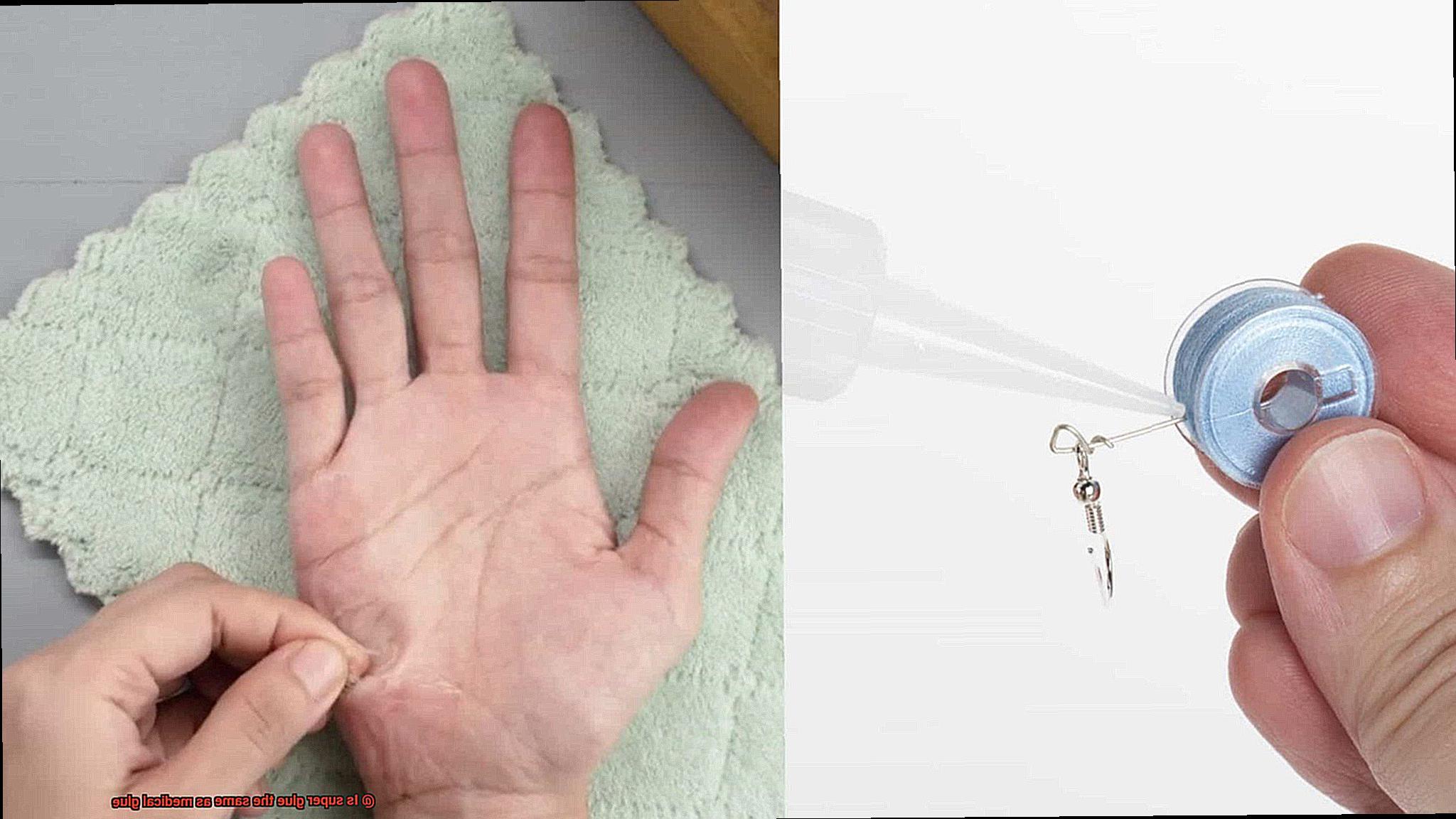
Prepare to witness the magic unfold. When exposed to moisture—whether it be the humidity in the air or natural moisture on surfaces—Super Glue undergoes a chemical reaction that causes it to cure with astonishing speed. This reaction triggers the formation of long chains of polymers, effectively fusing two surfaces together. In mere seconds or minutes, depending on the formulation, a bond of exceptional strength materializes before your eyes.
Advantages of Super Glue:
Herculean Strength: Super Glue forms bonds that can withstand tremendous stress and strain.
- Astonishing Versatility: It effortlessly bonds materials such as metal, plastic, rubber, ceramic, wood, and even certain fabrics.
- Fearless Against Temperature Extremes: Super Glue remains unyielding in the face of scorching heat or freezing cold.
- Defiant Against Moisture: The water resistance of Super Glue makes it ideal for applications where moisture exposure is a concern.
Limitations and Safety Precautions:
- Selective Surfaces: Super Glue may not work effectively on certain plastics or surfaces contaminated with oil.
- Handle with Care: Beware of skin and eye contact, as Super Glue can cause injuries by bonding surfaces together. Take precautions and avoid direct contact.
- Breathe Easy: Working in a well-ventilated area is essential to prevent inhaling the adhesive’s fumes.
Super Glue is the ultimate companion for DIY enthusiasts, creative crafters, and anyone seeking a reliable adhesive for repairs or projects. Its lightning-fast drying time, Herculean bonding strength, and resistance to temperature extremes and water make it an unrivaled choice for countless applications.
Remember to exercise caution, follow safety guidelines, and never confuse Super Glue with medical glue—they are entirely different products with distinct properties and purposes.
What is Medical Glue?
Medical glue, also known as surgical adhesive or tissue adhesive, is a remarkable substance that has revolutionized wound closure in modern medicine. Imagine a superhero sidekick in the form of a liquid adhesive designed to be applied topically to the skin or tissues, creating a strong bond between the edges of a wound. This magical glue seals the wound, allowing the healing process to begin.
One of the most amazing things about medical glue is its versatility. It can be used in various medical settings, from emergency rooms to operating theaters and outpatient clinics. Whether it’s a surgical incision, a deep cut, or a minor injury, medical glue can come to the rescue.
The application of medical glue is simple and painless. The wound is thoroughly cleaned and then the adhesive is carefully applied to the edges. Gentle pressure is applied to bring them together, and voila. The glue does its magic, forming a flexible barrier that shields the wound from external contaminants while allowing it to heal naturally.
But medical glue’s powers don’t stop there. It also has the ability to minimize scarring. Unlike traditional stitches or sutures, which can leave visible marks on the skin, medical glue is virtually invisible once applied. This means less worry about unsightly scars and more focus on your healing journey.
However, like any superhero, medical glue has its limitations. It may not be suitable for all types of wounds or certain areas of the body with high movement or tension. That’s why it’s essential for healthcare professionals to assess each case carefully and determine the most appropriate method of wound closure.
Differences Between Super Glue and Medical Glue
Glue, seemingly a simple product, holds a fascinating world of diversity. In this article, we delve into two popular types of glue—super glue and medical glue—to explore their differences and unique applications. Prepare to be amazed.
Composition:
Super glue contains cyanoacrylate, a fast-acting adhesive that forms a powerful bond upon contact with moisture. Conversely, medical glue can be composed of cyanoacrylate, fibrin, or albumin, carefully designed to meet the specific needs of medical applications.
Application:
Super glue excels at fixing broken objects and bonding materials together. However, it should never be applied to skin due to its potential to cause irritation or burns. On the other hand, medical glue is specially formulated for use on the skin and is commonly employed in hospitals to close wounds or incisions. Medical professionals skillfully apply it directly to the skin using specialized applicators or syringes.
Safety:
Safety is a paramount concern when comparing super glue and medical glue. Super glue is not sterile and can introduce foreign substances into wounds if used in a medical context. In contrast, medical glue undergoes rigorous testing and stringent safety standards to ensure its suitability for healthcare settings. It is sterile and designed to minimize the risk of adverse reactions or infections.
Flexibility:
Super glue forms an inflexible and rigid bond, which may not be appropriate for applications requiring flexibility. Conversely, medical glue is engineered to maintain some degree of flexibility once it has cured. This crucial attribute allows for natural movement of the skin or tissues without compromising the integrity of the bond.
Removal:
Removing cured super glue can prove challenging, particularly from delicate surfaces or skin. Dissolving the bond often requires acetone or specialized solvents. In contrast, medical glue gradually breaks down over time, naturally sloughing off as the skin heals. If necessary, medical professionals may employ specific solvents or techniques to remove any remaining residue.
Uses of Super Glue
Super glue, also known as cyanoacrylate adhesive, is like a magical elixir that possesses the remarkable ability to bond almost anything together. It’s the secret weapon in every DIY enthusiast’s toolbox and the go-to adhesive for quick fixes. But its uses extend far beyond just sticking things together.
Let’s dive into the world of super glue and explore its versatile applications. Firstly, bonding materials – super glue is a master at repairing broken items. From ceramics to glass, plastic to metal, this adhesive can work wonders. That favorite coffee mug with a crack? Super glue has got your back. A cherished toy that needs fixing? Super glue to the rescue.
Crafters and DIYers swear by super glue for their creative projects. It effortlessly bonds different materials like wood, fabric, and paper. So whether you’re making dazzling jewelry, creating one-of-a-kind home decor pieces, or simply fixing something around the house, super glue is your ultimate companion.
Super glue has found its place in the medical field as well. Although it should not be used on deep or serious wounds, it can be used as a temporary adhesive to close minor cuts and wounds. And in the world of dentistry, super glue is a hero. It can bond dental crowns or bridges to natural teeth, and even repair dentures.
Even the world of electronics benefits from the mighty powers of super glue. Loose wires or components on your gadgets? A dab of super glue can fix that. It ensures everything stays in place and prevents future damage.
But wait, there’s another trick up its sleeve – super glue doubles as a sealant too. Need to seal small cracks or gaps to prevent leaks? Super glue has got you covered. It forms a strong seal that keeps everything intact.
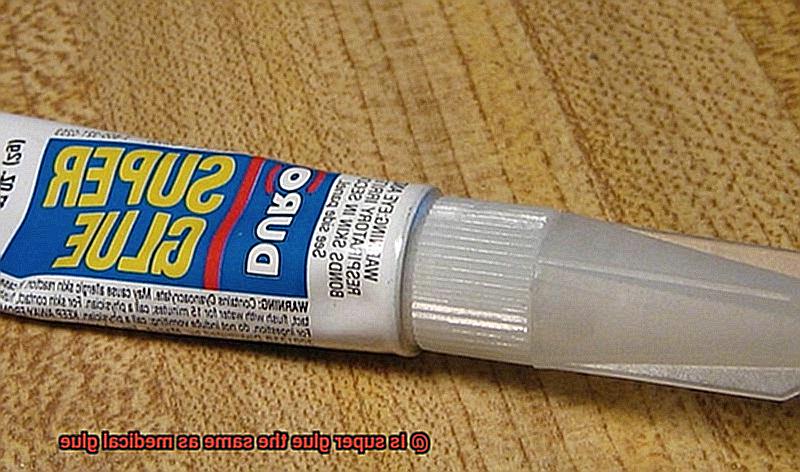
Surprisingly enough, some people even use super glue for cosmetic purposes. Broken nails ruining your day? No worries – super glue can fix them in a jiffy. You can even use it to attach artificial nails for those special occasions when you want fabulous claws.
And let’s not forget our furry friends. Super glue has made its way into veterinary medicine as well. It can be used as a temporary solution to close wounds on animals, providing a quick fix until they can receive proper medical attention.
While super glue is undoubtedly a versatile adhesive, it’s essential to follow instructions and use it safely. It’s not meant for all types of repairs or medical applications. So remember, always read the labels and use it wisely.
Uses of Medical Glue
In the world of medicine, there exists a secret weapon that allows doctors and veterinarians to close wounds with precision, speed, and aesthetic perfection. This weapon is none other than medical glue, also known as surgical glue or tissue adhesive. With its ability to securely bond skin and tissues, medical glue has become a game-changer in the field of medicine, replacing traditional sutures and staples in various applications.
One of the primary uses of medical glue lies in the closure of wounds and incisions. Whether it’s a small cut, a superficial wound, or an area that is difficult to suture, medical glue provides the perfect solution. Its specialized formulation ensures a secure bond that holds the skin together during the healing process, promoting faster recovery and minimizing scarring.
However, medical glue’s versatility goes beyond wound closure. It finds extensive application in surgical procedures, acting as a versatile tool for surgeons. For instance, it can be used to secure grafts or flaps during complex skin or tissue reconstruction surgeries. By providing a reliable bond between different layers of tissue, medical glue ensures optimal healing and improves surgical outcomes.
In addition, medical glue shines in sealing blood vessels and anatomical structures during specific procedures. By creating a tight seal, it minimizes the risk of complications such as bleeding or leakage. This feature is particularly valuable in delicate surgeries where precision is crucial.
Moreover, medical glue has transcended human medicine to make its mark in veterinary practice as well. Veterinarians rely on this adhesive wonder for wound closure and surgical procedures in animals. The quick and effective nature of medical glue simplifies procedures while maintaining the highest standards of care for our furry friends.
Dentistry also benefits from the wonders of medical glue. Dental adhesive formulations specifically designed for this field allow for the bonding of dental restorations like crowns, veneers, and bridges to natural tooth structures. These adhesives withstand the forces of chewing and biting, providing a robust and durable bond that ensures the longevity of dental restorations.
Surprisingly, medical glue even plays a role in ophthalmic surgeries. Surgeons utilize it to seal corneal incisions or secure intraocular lenses during cataract surgery. By relying on medical glue, they can reduce the risk of complications such as leakage or displacement, ensuring optimal outcomes for their patients.
While medical glue boasts numerous advantages, it’s essential to note that it’s not suitable for all wounds or surgical procedures. Healthcare professionals carefully evaluate each case, taking into consideration factors such as wound size and location, patient history, and desired cosmetic outcome. This approach ensures that the most appropriate closure method is chosen for each unique situation.
Safety Considerations for Super Glue and Medical Glue
When it comes to glue, one must recognize that different types serve different purposes. While super glue and medical glue may seem similar, they have distinct formulations and intended uses. As an expert on the subject, let’s explore the safety considerations for both super glue and medical glue in detail.
Super Glue Safety Considerations:
- Skin Contact: Super glue is notorious for its rapid bonding to skin, which can lead to skin irritation or injury. To avoid this, it is crucial to refrain from direct contact with the skin and consider wearing protective gloves when handling super glue.
- Eye Contact: Accidental eye contact with super glue can cause severe irritation and potentially damage the cornea. In such cases, immediate rinsing of the eyes with water and seeking medical attention is essential.
- Inhalation: The fumes emitted by super glue can irritate the respiratory system. Working in a well-ventilated area or wearing a mask is recommended to minimize any potential respiratory issues.
- Ingestion: Super glue should never be ingested under any circumstances. If accidentally ingested, immediate medical attention should be sought.
Medical Glue Safety Considerations:
- Skin Preparation: Before applying medical glue, ensuring that the skin is clean, dry, and free from oils or debris that could hinder adhesion is crucial for optimal effectiveness.
- Allergies: It’s important to note that some individuals may be allergic or hypersensitive to the components of medical glue. Conducting a patch test before applying it to a larger area, particularly for individuals with a history of allergies, is highly recommended.
- Wound Type: While medical glue is suitable for small lacerations or clean incisions, it may not be appropriate for deep wounds or those requiring precise tissue alignment. In such cases, alternatives like sutures or staples may be more suitable.
- Handling and Storage: Proper handling and storage of medical glue are vital to maintain its efficacy and prevent contamination. Following the manufacturer’s instructions, checking the expiration date, and discarding any expired adhesive is essential.
Advantages of Using Medical Glue over Super Glue
Medical glue, specifically formulated for use in healthcare settings, offers significant advantages over super glue, the everyday adhesive. In this article, we will explore the unique benefits of using medical glue and why it should be the adhesive of choice for wounds and surgical incisions.
Biocompatibility:
Medical glue is extensively tested to be safe for use on the human body, ensuring its biocompatibility. Unlike super glue, which may contain toxic chemicals, medical glue is non-toxic and hypoallergenic. This makes it a safer choice for medical applications, as it does not cause irritation or harm to the skin.
Flexibility:
One of the key advantages of medical glue is its flexibility once set. This flexibility allows for natural movement of the body without compromising the bond. Whether it’s a wound in a joint area or on the face, medical glue ensures that the wound stays closed even with regular movements. On the other hand, super glue can be brittle and may crack or break under stress, leading to complications or delayed healing.
Antibacterial Properties:
Many medical glues are formulated with antibacterial agents that help prevent infections in wounds or incisions. This property becomes particularly significant in surgical settings where maintaining a sterile environment is crucial. Super glue lacks these antibacterial properties and may not provide the same level of protection against infections.
Faster Healing:
Medical glue promotes faster wound healing compared to super glue. Its adhesive properties create a tight seal that keeps wounds closed and protected from external contaminants, allowing the body’s natural healing processes to work more efficiently. This reduces the risk of complications and expedites recovery.
Minimal Scarring:
Medical glue minimizes scarring by forming a thin layer over the wound that gradually sloughs off as the skin underneath heals. In contrast, traditional sutures or staples can leave visible scars once removed. Opting for medical glue results in less noticeable scarring and a more aesthetically pleasing outcome.
Ease of Application:
Medical glue is relatively simple to apply, even for non-medical professionals. It typically comes in a user-friendly applicator that allows precise and controlled placement of the adhesive. Super glue, not designed for medical applications, may lack the same ease of use or precision.
Disadvantages of Using Medical Glue over Super Glue
When it comes to closing wounds or surgical incisions, the choice of adhesive can make a world of difference. While super glue may seem like a tempting quick fix, medical glue offers numerous advantages that outweigh its cheaper counterpart. In this blog post, we will explore the disadvantages of using medical glue over super glue, shedding light on why medical professionals opt for the former.
Disadvantages of Super Glue:
- Risk of Infection: Super glue is not sterile and can introduce harmful bacteria or contaminants to the wound, increasing the risk of infection. Medical glue, on the other hand, is sterilized and specifically designed to minimize the risk of infection.
- Skin Irritation and Allergic Reactions: Super glue has been known to cause skin irritation or trigger allergic reactions in some individuals. Conversely, medical glue is formulated to be less irritating and less likely to cause allergic reactions.
- Stronger Bond, Greater Challenge: While super glue boasts a stronger bond, this can prove problematic when a wound needs to be re-opened for further treatment or additional surgical procedures. Removing super glue can be difficult and potentially cause further damage.
- Lack of Flexibility: Super glue lacks flexibility and can crack or break under stress or movement. In contrast, medical glue is designed to be flexible and move with the body, reducing the likelihood of the wound reopening or the adhesive coming loose.
- Regulatory Approval: Super glue is not approved by regulatory bodies for use in medical applications. On the contrary, medical glue undergoes rigorous testing and approval processes to ensure its safety and effectiveness in medical settings.
While super glue may have its uses in everyday situations, it falls short in terms of meeting the specific requirements of medical applications. The disadvantages of using super glue over medical glue include increased risk of infection, skin irritation, difficulty in removal, lack of flexibility, absence of regulatory approval, and potential delays in healing.
Medical glue, on the other hand, offers a sterile, flexible, and biocompatible solution that promotes faster healing, minimizes scarring, and ensures precision control in delicate procedures.
vDLrxILRwfA” >
Also Read: Is Krazy Glue Toxic?
Conclusion
Super glue and medical glue may seem similar, but they are not the same. While both types of glue are adhesives, they have distinct differences in their composition and intended use.
Super glue, also known as cyanoacrylate adhesive, is a fast-acting adhesive commonly used for household repairs. It bonds quickly to various materials such as metal, plastic, and wood. However, it is not suitable for medical applications due to its toxicity and potential skin irritation.
On the other hand, medical glue, also called surgical adhesive or tissue adhesive, is specifically designed for medical purposes. It is made from biocompatible materials that are safe for use on human skin and tissues. Medical glue is often used in wound closure procedures as an alternative to traditional sutures or staples. It provides a strong bond while promoting faster healing and reducing scarring.
It’s important to note that using super glue as a substitute for medical glue can have serious consequences. Super glue is not sterile and can cause infection when applied to open wounds. Additionally, its chemical composition may interfere with the healing process and lead to complications.
In conclusion, while both super glue and medical glue serve the purpose of bonding materials together, they differ significantly in their composition and intended use.

